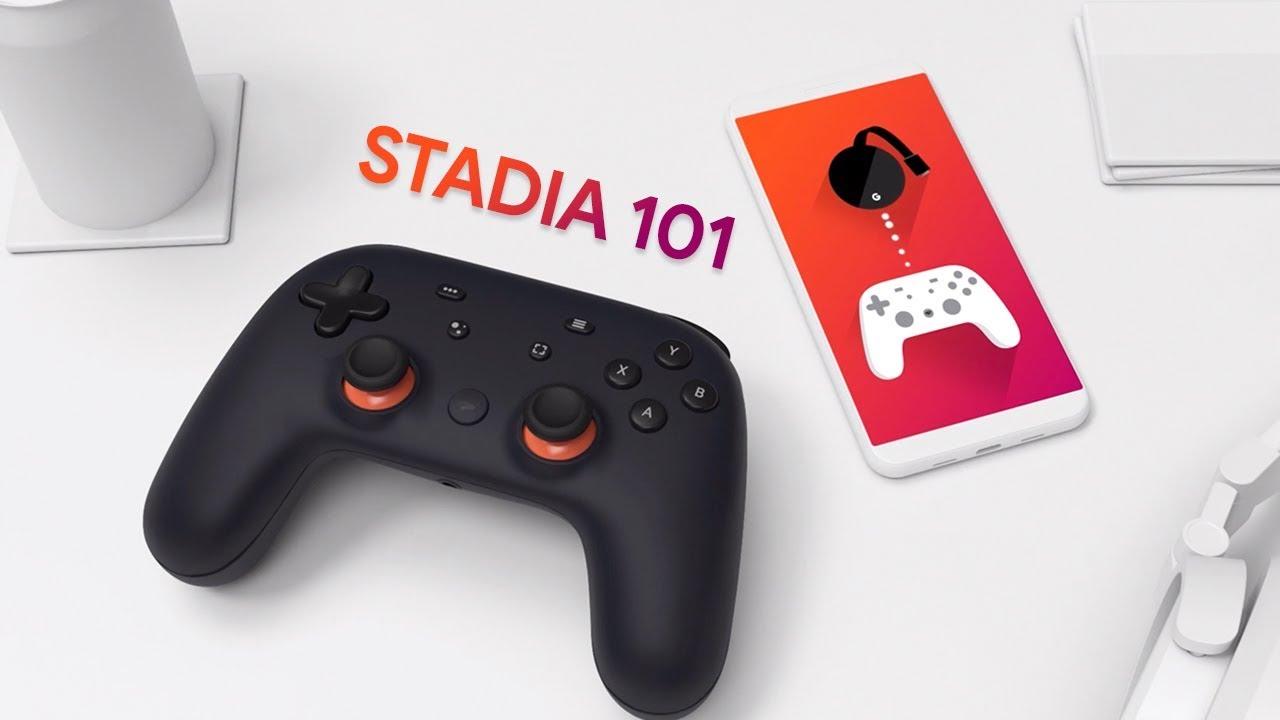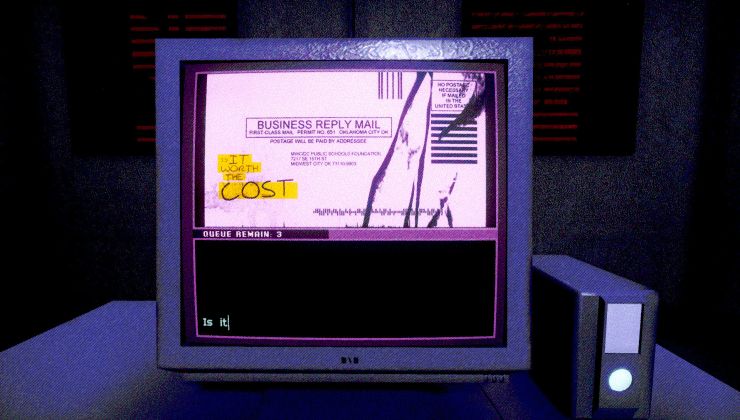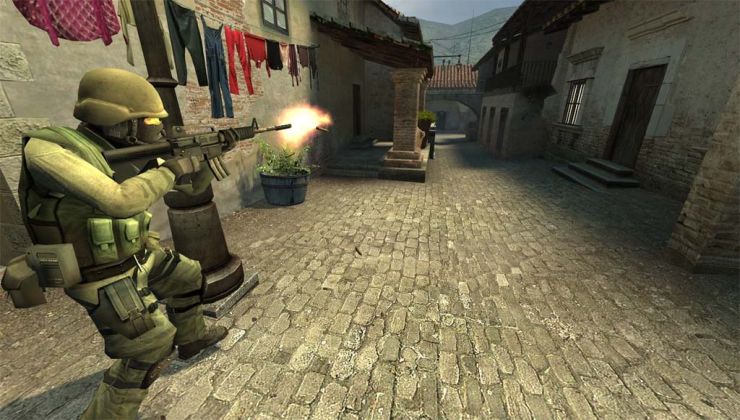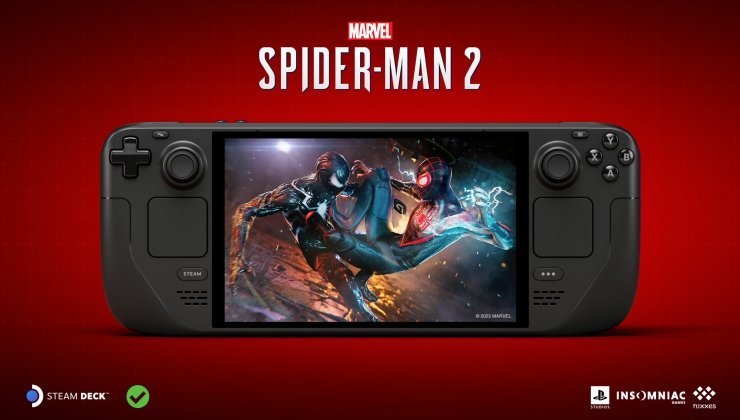Stadia, Google's new fancy Linux-powered game streaming service is officially set to launch on November 19, that is if you forked out for the expensive Stadia Founder's Edition.
In the blog post over on Google, written by John Justice the "Vice President of Product, Stadia", they mention that the Founder's Edition should start arriving on doorsteps on November 19. From then, you will be able to buy and play games beginning at 4PM UTC and it will work across devices right away (so you don't need to use that fancy Chromecast Ultra). As long as your Linux PC has a Chrome browser installed, it should work fine.
However, there's an important note included to say that they will be shipped out "in the same order that pre-orders were received". So if your country still had them available yesterday and you ordered, you're probably in for a wait. Justice said once your package ships, you will then get an email and sometime shortly after a code to activate it all.
As a reminder, while Stadia is a game streaming service it's not like Netflix since you do still need to buy the games just like you would on Steam or GOG. The "Pro" subscription at around £8.99 / $9.99 a month gives you 4K, surround sound, discounts and the occasional free game. The Base Stadia account is not a subscription but it's not free, since again you buy games.
We have a Stadia Founder's Edition ordered to cover here, so keep an eye out later next month to see what we think of it. Well, whenever our unit arrives anyway, we're probably way back in the queue due to when we confirmed our order.
Google also put out a quick overview video today too:

Direct Link
There was a note in the video that you can only use the Stadia Controller in wireless mode with the Chromecast Ultra on a TV at launch, although wired mode and other gamepads/keyboard will work fine on PC.
Apart from the launch date and the note about shipping based on the order queue, no other info was given out. They also didn't mention if anyone can buy a Stadia Pro subscription then or if everyone else just has to wait until next year when Stadia rolls out fully.
From what I read somewhere, it's because the original Chromecast doesn't support VP9.and it will work across devices right away (so you don't need to use that fancy Chromecast Ultra). As long as your Linux PC has a Chrome browser installed, it should work fine.
I don't get this it should work on normal chrome browser even on android phones??. So then it should work in a normal ChromecastUH?
I still don't get it. Wasn't stadia supposed to be interconnected with youtube?? I can stream from my linux pc with chrome or from my android phone to my chromecast, why should it be any different? I guess will have to wait to know the details why this is not possible.
you need to decode things fast in order to get an good experience, they only way to do that is with either an good processor, video card or asic.
chromecast 3 probably has an asic for vp9, and new phones can do that either by an asic on the cpu, the gpu or by bruthe force (without an dedicated hardware extension, using more cycles to process the same information, but still doing it fast enough)
Last edited by elmapul on 18 Oct 2019 at 7:14 am UTC
you need to decode things fast in order to get an good experience, they only way to do that is with either an good processor, video card or asic.
Current integrated graphics have built-in VP9 support.
https://opensource.google/projects/explore/featured
android, chromium, go language, dart language, fuchsia os, kubernetes, webrtc, webm and many many more. And coincidentally some of those projects have benefited their competitors like amazon using the android fork, fireos ;
actually fuchsia may be a bad thing, it will be just like linux, except that the licence allow it to not be open source in the future
and fireos was not able to compete, competing is not as easy as to make a fork, especially when a lot of games use google play service and a lot of purchases of apps are done withing google play services, its a lock-in, an disguised one, but still an lock-in.
actually fuchsia may be a bad thing...Whoa, I'll believe Fuschia when I see it... Who know what, if anything, they'll do with that. I've long considered myself a Google fan, but I'm getting jaded after seeing head-scratching move after move... Especially after this bewildering Google hardware launch (Pixel 4 expensive and missing features, Pixelbook GO with WTF spec choices, no movement on Chrome OS in a while, killing services I use left and right, etc) I'm losing faith in their ability to read the market and to see things through to a satisfactory conclusion. Perpetually keeping everything in beta and treating things as disposable experiments that hundreds of millions of people around the world use every day is getting old... As a fan and early adopter of smartwatches and someone for whom that kind of notification system really fits with my workflow, their complete near abandonment of Wear OS has felt particularly insulting and betraying. It seems like Google is naval gazing too much and not plugged into their customers.
...fireos was not able to competeConsidering the number of Fire devices Amazon has sold and how ubiquitous they are, and their likely level of investment (or lack thereof) in FireOS, I'm guessing they've been pretty happy with it....
Last edited by iiari on 20 Oct 2019 at 5:33 am UTC
i'm worried about DRM and censorship too, but lets take it easy for now.It is not my intent to offend, I am not singling you out, just addressing the expressed sentiment, as it is eerily similar to what many people I talked with said when microtransactions were gaining a foothold (i.e. "wait and see"). I felt the writing on the wall was clear then, and I feel, in this instance, the writing on the wall is clear now.
Given consumer passivity, I believe streaming will become the norm in time (a few decades), although it seems unlikely to me that it will become pervasive with Google Stadia v1. And I do believe this is driven more by consumer passivity than by untapped consumer demand. That's not to say that I can't see the appeal of services like Stadia in certain situations, but I feel this is less about meeting untapped demand and more about transitioning (i.e. herding) an existing market in a way that further lessens consumer self-administration. The hype I see surrounding this (much like with "games as a service") is primarily coming from corporations telling consumers that they should want this and that it is in their best interests (convenience, savings, life cycle, connectivity, potential, etc), rather than most consumers salivating at the idea.
Some of these services are backed by expansive megacorporations, so pushback is difficult (they have louder megaphones, more of them, and your megaphones may be provided by them, and if so, they may opt to reduce the volume of your megaphones), but pushback is not necessarily impossible. However, it becomes nearly Sisyphean if waiting to address the negatives until these services are already entrenched (e.g. by the time certain games become exclusive to streaming platforms). The one possible wrench in the works is if we experience another video game industry crash (not likely, but not impossible), but that would probably only serve as a delay. (Note: Let me be clear that I do not want a video game industry crash.)
I love technological progress and I love the idea of making gaming more accessible, but I see this as having less to do with technology and accessibility and more having to do with consumer engineering. Because of the former, I can't reject it in concept, but because of the latter I can't endorse it or consider it a good thing in its present form.
As an aside, I feel infinitely less wary of Shadow, as Blade SAS is not an 800-pound gorilla.
be the future an utopy or an distopy, there is NOTHING we can do about it.I disagree. I think something could be done about it, but won't be.
Last edited by vector on 20 Oct 2019 at 5:27 pm UTC
If they used Linux servers, and the censored search engine could be accessed by Linux users in China, wouldn't that be worth the trade-off?I don't see google as a negative monopoly in this case it is a positive monopoly if they were that evil, they would work with the Chinese government to control everything because that would be their wet dream right?
Heh, I'm veering wildly offtopic here, but, er: https://www.theguardian.com/world/2018/aug/02/google-working-on-censored-search-engine-for-china
Ah, well. Civilization may well have fallen by then, so no worries.i'm worried about DRM and censorship too, but lets take it easy for now.It is not my intent to offend, I am not singling you out, just addressing the expressed sentiment, as it is eerily similar to what many people I talked with said when microtransactions were gaining a foothold (i.e. "wait and see"). I felt the writing on the wall was clear then, and I feel, in this instance, the writing on the wall is clear now.
Given consumer passivity, I believe streaming will become the norm in time (a few decades)
Short of that, the same principle applies: It's really hard to extrapolate trends long term, especially these days, because there are so many other forces at work. Given current trends of consolidation, one might expect that within a few decades one elderly white man will be at the top of a single huge megacorporation which controls all the world's wealth. But in fact that is unlikely to happen; in one way or another, many current trends will be interrupted by other trends and events pushing in other directions.
Last edited by Purple Library Guy on 20 Oct 2019 at 8:30 pm UTC
Oh goodie. The ultimate DRM and censorship scheme. I'm so excited this is being warmly received because the servers happen to be running on Linux.
i'm worried about DRM and censorship too, but lets take it easy for now.
just remember that chromeOS was online only too when it launched, i think stadia is just an temporary solution until they can get more marketshare for their chromeOS, then they will be able to entice more developers to add offline capabilities too.
actually, chromeOS may be the reason why they are doing stadia anyway, its the only way to make it grow, without games it would strugle to grow otherwise.
also, i'm pretty sure that sony or microsoft will attack that disadvantage that stadia has to attack it, so they will have to respond.
also: onlive is not alive anymore, not because the company was bankrupt but because they where acquired by sony to use their technology on psnow...
lets just remember that before they shut down their servers they offered the option to download your games from they. (cloud lift)
in any case.
be the future an utopy or an distopy, there is NOTHING we can do about it.
There is plenty we can do about it. Just because SOME things are not in our control, doesn't mean nothing is.
you need to decode things fast in order to get an good experience, they only way to do that is with either an good processor, video card or asic.
Current integrated graphics have built-in VP9 support.
yes, that built-in vp9 suport IS an asic, it dont matter if its part of the processor or gpu, it does have one.
we cant even trust our processor, its pointless to have even an open source compiler if we can't trust the processor itselfOh goodie. The ultimate DRM and censorship scheme. I'm so excited this is being warmly received because the servers happen to be running on Linux.
i'm worried about DRM and censorship too, but lets take it easy for now.
just remember that chromeOS was online only too when it launched, i think stadia is just an temporary solution until they can get more marketshare for their chromeOS, then they will be able to entice more developers to add offline capabilities too.
actually, chromeOS may be the reason why they are doing stadia anyway, its the only way to make it grow, without games it would strugle to grow otherwise.
also, i'm pretty sure that sony or microsoft will attack that disadvantage that stadia has to attack it, so they will have to respond.
also: onlive is not alive anymore, not because the company was bankrupt but because they where acquired by sony to use their technology on psnow...
lets just remember that before they shut down their servers they offered the option to download your games from they. (cloud lift)
in any case.
be the future an utopy or an distopy, there is NOTHING we can do about it.
There is plenty we can do about it. Just because SOME things are not in our control, doesn't mean nothing is.







 How to set, change and reset your SteamOS / Steam Deck desktop sudo password
How to set, change and reset your SteamOS / Steam Deck desktop sudo password How to set up Decky Loader on Steam Deck / SteamOS for easy plugins
How to set up Decky Loader on Steam Deck / SteamOS for easy plugins
See more from me